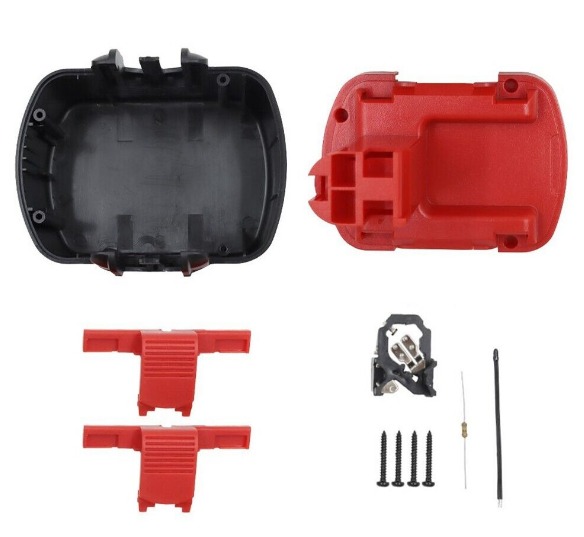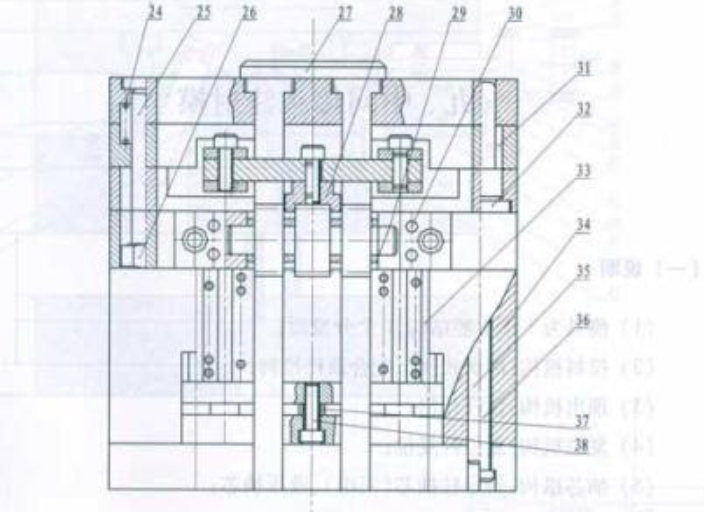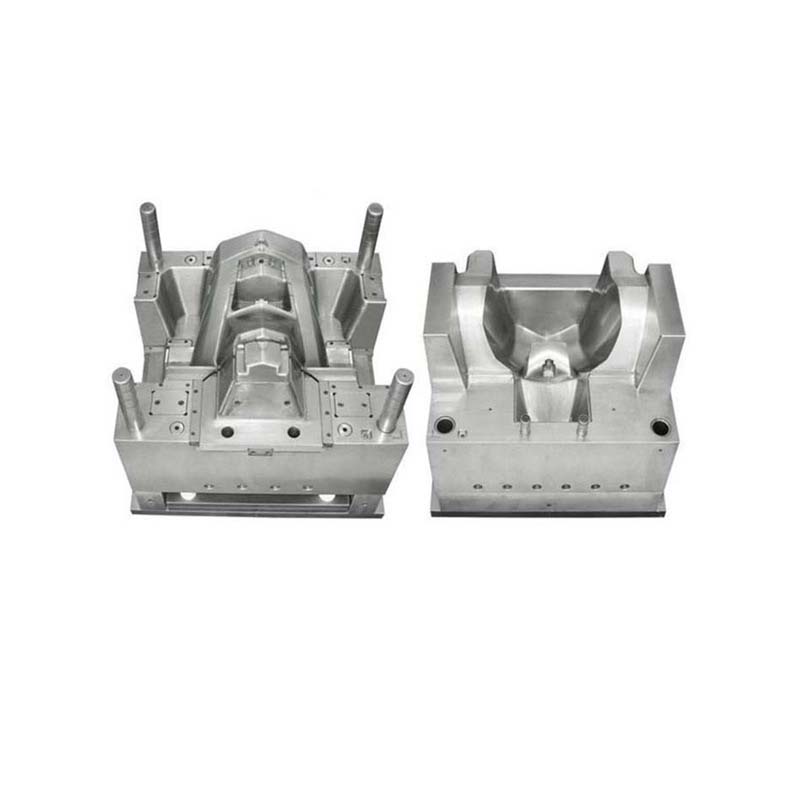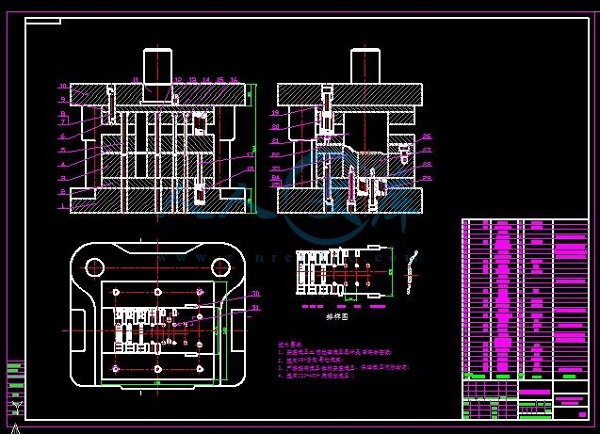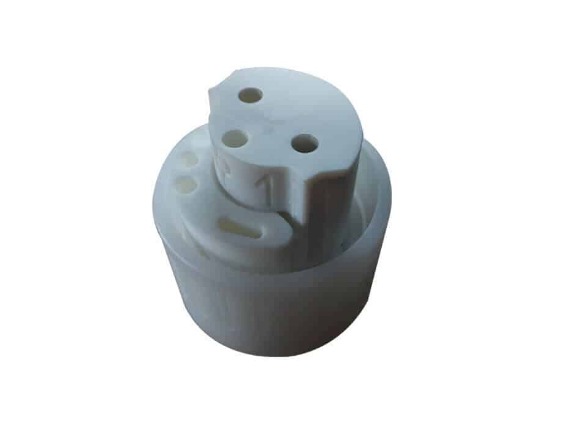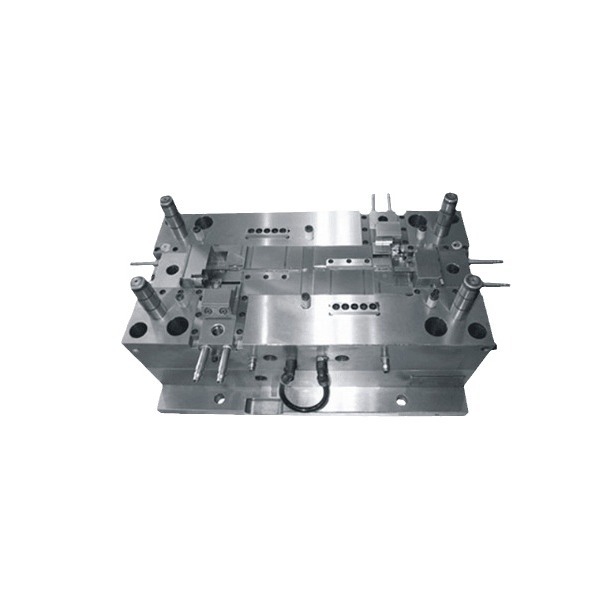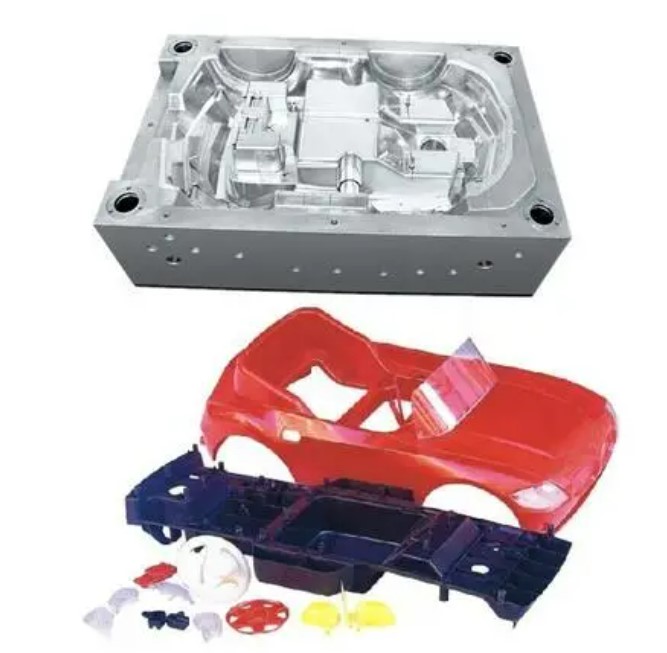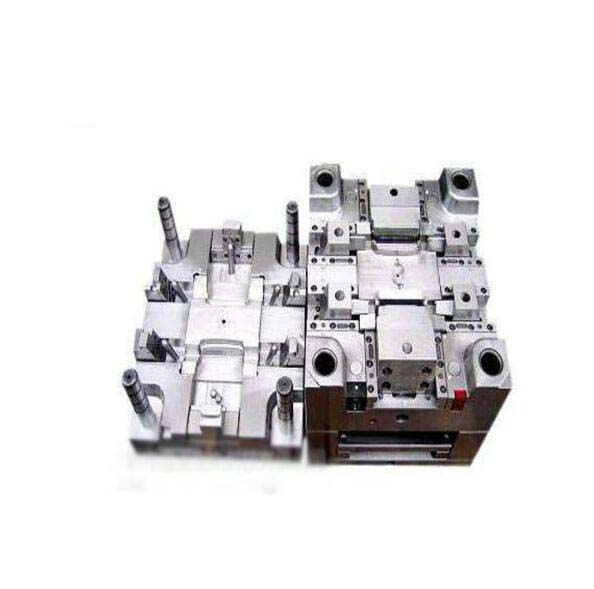What are China Mould Parts?
China has emerged as a global powerhouse in the manufacturing industry, and China mould parts play a pivotal role in this success story. Mould parts are components that are used in the production of moulds, which are essential tools for shaping various materials into desired forms. These parts are the building blocks of the mould - making process and are crucial for industries ranging from automotive and electronics to consumer goods and medical devices.
In simple terms, a mould is like a template or a negative shape. When a molten or malleable material such as plastic, metal, or rubber is poured into or pressed against the mould, it takes on the shape of the mould cavity. Mould parts are the individual elements that make up this mould, including cores, cavities, inserts, ejector pins, and more. For example, in plastic injection moulding, the mould cavity determines the outer shape of the plastic product, while the core forms the internal features. Ejector pins are used to push the finished product out of the mould after the material has solidified.
The quality and precision of China mould parts are remarkable. With continuous investment in advanced manufacturing technologies such as Computer - Aided Design (CAD), Computer - Aided Manufacturing (CAM), and Electrical Discharge Machining (EDM), Chinese manufacturers can produce mould parts with extremely tight tolerances. In fact, many Chinese mould - making companies can achieve tolerances as low as ±0.001mm, which is on par with the best in the world. This high level of precision ensures that the final products made using these mould parts meet the strictest quality standards.
Moreover, China's vast manufacturing ecosystem offers a wide range of mould parts. Whether you need standard mould parts that follow international standards like those set by the International Organization for Standardization (ISO) or custom - designed parts tailored to specific product requirements, you can find them in the Chinese market. The diversity of materials used in China mould parts is also impressive, including various grades of steel, aluminum, copper, and high - performance plastics, each chosen for its specific mechanical properties, such as strength, hardness, heat resistance, and corrosion resistance.
As we move forward, let's explore the different types of China mould parts in more detail and how they are used across various industries.
Types of China Mould Parts
China mould parts come in a wide variety of types, each tailored to specific manufacturing needs and industries. The main categories include plastic mould parts, metal mould parts, and precision mould parts.
Plastic Mould Parts
Plastic mould parts are fundamental in the production of plastic products, which are ubiquitous in our daily lives. Common types of plastic mould parts include cores and cavities. The core is the part of the mould that forms the internal features of a plastic product. For example, in the production of a plastic bottle, the core determines the shape of the inner hollow space. Cavities, on the other hand, define the outer shape of the product.
Inserts are another important type of plastic mould part. They are often used to add specific features or functions to the plastic product. For instance, inserts can be metal components that are placed inside the plastic mould to create threaded holes or reinforced areas in the final plastic part. This is common in the manufacturing of plastic electronic enclosures, where metal inserts provide strong attachment points for screws.
Ejector pins are crucial for the efficient removal of plastic products from the mould. Once the plastic has cooled and solidified in the mould, ejector pins push the product out, ensuring a smooth production process. In high - volume plastic injection moulding operations, such as those producing plastic toys or disposable cutlery, the proper functioning of ejector pins is essential to maintain production speed and quality.
Metal Mould Parts
Metal mould parts are characterized by their high strength, durability, and heat resistance. These properties make them ideal for applications where plastic mould parts would not be suitable. Common metals used in metal mould parts include various grades of steel, aluminum, and copper.
Steel mould parts, especially those made from high - carbon or alloy steels, are extremely strong and can withstand high pressures and temperatures. They are widely used in the automotive industry for manufacturing parts like engine components, transmission housings, and body panels. For example, in die - casting processes, steel moulds are used to create complex and high - precision metal parts with excellent dimensional accuracy.
Aluminum mould parts are favored for their lightweight nature and good thermal conductivity. They are often used in the production of heat sinks for electronic devices, as well as in the aerospace industry for manufacturing lightweight components. Aluminum's relatively low melting point also makes it easier to work with in certain casting processes.
Copper mould parts are known for their high electrical and thermal conductivity. They are commonly used in the production of electrical connectors, circuit boards, and components in the electronics industry that require efficient heat dissipation or excellent electrical performance.
Precision Mould Parts
Precision mould parts are designed to meet the most stringent tolerances and quality standards. Precision is of utmost importance in these parts, as even the slightest deviation can lead to malfunctions in the final products.
The manufacturing of precision mould parts often involves advanced techniques such as high - speed machining, wire - EDM (Electrical Discharge Machining), and micro - milling. High - speed machining allows for the production of complex shapes with high precision and surface finish in a relatively short time. Wire - EDM uses an electrically charged wire to cut through conductive materials with extreme accuracy, creating intricate shapes and features.
Precision mould parts find applications in high - end industries such as medical device manufacturing, aerospace, and semiconductor production. In the medical field, precision mould parts are used to create components for surgical instruments, implants, and diagnostic equipment. In the aerospace industry, they are crucial for manufacturing parts for aircraft engines, avionics systems, and landing gear components. In semiconductor manufacturing, precision mould parts are used to produce molds for wafer processing, which requires extremely tight tolerances to ensure the proper functioning of microchips.
Applications of China Mould Parts
China mould parts find extensive applications across various industries, playing a crucial role in the production processes. Their high - quality and precision - engineered nature make them suitable for a wide range of manufacturing requirements.
Automotive Industry
In the automotive industry, China mould parts are used extensively. They are essential for manufacturing various components such as automotive body panels, engine parts, and interior components. For example, car body panels like the hood, doors, and fenders are made using large - scale metal mould parts. These mould parts are designed to withstand high - pressure stamping processes, ensuring that the final body panels have the right shape, strength, and surface finish.
Interior components such as dashboard panels, door trims, and seat frames often use plastic mould parts. These plastic mould parts can be produced with intricate designs, providing a comfortable and aesthetically pleasing interior for the vehicle. Many well - known automotive brands, including Tesla, use China - made mould parts. Tesla sources some of its aluminium alloy body panel moulds from Chinese manufacturers. These moulds are produced with high - precision CNC machining and advanced casting techniques, ensuring that the body panels are lightweight yet strong, meeting Tesla's strict quality and safety standards. According to market research, in 2023, about 30% of the global automotive mould parts market was supplied by Chinese manufacturers, and this number is expected to grow steadily in the coming years.
Medical Device Industry
In the medical device industry, China mould parts are of utmost importance. The production of medical devices requires a high level of precision and quality, and China mould parts meet these stringent requirements. For instance, components for surgical instruments, such as forceps, scalpels, and syringe barrels, are often made using precision metal mould parts. These mould parts are crafted with extremely tight tolerances to ensure the functionality and safety of the surgical instruments.
Plastic mould parts are also widely used in the production of disposable medical products like syringes, infusion sets, and catheters. The medical - grade plastics used in these mould parts are biocompatible and meet strict sterilization requirements. A Chinese company, for example, supplies high - precision mould parts for the production of insulin pens to a major international medical device manufacturer. These mould parts are produced using advanced EDM (Electrical Discharge Machining) and micro - milling techniques to achieve the required precision for the complex internal mechanisms of the insulin pens.
Home Appliance Industry
China mould parts play a significant role in the home appliance industry. They are used in the production of various home appliances, from large - scale refrigerators and washing machines to small - scale kitchen appliances. In refrigerators, for example, the inner liners and outer casings are made using plastic mould parts. These mould parts are designed to have excellent insulation properties and a smooth surface finish, enhancing the energy - efficiency and aesthetics of the refrigerator.
For washing machines, metal mould parts are used to manufacture the drum and the outer frame, ensuring durability and stability during the washing process. A recent innovation is the use of high - strength, lightweight aluminium alloy mould parts in some high - end washing machines, which reduces the overall weight of the appliance while maintaining its structural integrity. In the case of kitchen appliances like blenders and toasters, plastic mould parts are used for the housing, and precision metal mould parts are used for the internal components such as the motor brackets and blade holders. A well - known Chinese mould - making company supplies mould parts to major global home appliance brands like Samsung and LG. Their mould parts are known for their high quality, which contributes to the reliability and long - service life of these home appliances.
Why Choose China Mould Parts?
Cost - effectiveness
One of the most compelling reasons to choose China mould parts is their cost - effectiveness. In the global market, price is often a crucial factor for buyers. For example, when comparing the price of a standard P20 plastic mould steel part, a Chinese - made one might cost around \(13.5 per kilogram (as per data from domestic suppliers like Baosteel), while a German - made one from ThyssenKrupp (a well - known international supplier) is approximately \)19 per kilogram, and an American - made one from Carpenter Technology can be as high as $26 per kilogram. This significant price difference can lead to substantial cost savings for businesses, especially when large quantities of mould parts are needed.
The cost advantage of China mould parts can be attributed to several factors. Firstly, China has a large and efficient manufacturing ecosystem. The presence of numerous raw material suppliers, component manufacturers, and service providers in close proximity reduces transportation and procurement costs. For instance, in areas like the Pearl River Delta and the Yangtze River Delta, there are clusters of mould - related industries. A mould - making company in these regions can source steel, aluminum, and other raw materials from nearby suppliers, which not only saves on shipping fees but also enables better negotiation of prices due to the high volume of local demand.
Secondly, the relatively lower labor cost in China also contributes to the cost - effectiveness of mould parts. Skilled workers in the mould - making industry in China can perform complex tasks such as precision machining and mould assembly at a lower wage compared to their counterparts in developed countries. However, it's important to note that while labor cost is lower, the quality of work is not compromised, as Chinese workers are well - trained and have extensive experience in the field.
High Quality
Quality is a top - priority for any buyer, and China mould parts have proven their mettle in this regard. Chinese mould part manufacturers have made significant investments in advanced production equipment. Many factories are equipped with state - of - the - art Computer Numerical Control (CNC) machines, which can achieve extremely high precision in machining operations. For example, these CNC machines can produce mould parts with tolerances as tight as ±0.001mm, ensuring that the final products made from these moulds meet the strictest quality standards.
In addition to advanced equipment, Chinese manufacturers also adhere to strict quality control systems. From the selection of raw materials to the final inspection of the finished mould parts, every step of the production process is closely monitored. For instance, before starting production, raw materials such as steel and aluminum are thoroughly tested for their chemical composition and mechanical properties to ensure they meet the required standards. During the manufacturing process, in - line inspections are carried out to detect and correct any potential defects promptly. After production, a comprehensive final inspection is conducted using advanced measuring and testing equipment, such as coordinate measuring machines (CMMs) and optical comparators.
Many Chinese mould part manufacturers have also obtained international quality certifications, which is a testament to their commitment to quality. Certifications like ISO 9001 (Quality Management System), ISO 14001 (Environmental Management System), and TS 16949 (Automotive Quality Management System) are quite common among Chinese mould - making companies. These certifications not only ensure that the products meet international quality standards but also demonstrate the company's ability to manage its operations effectively and sustainably.
Rich Experience and Expertise
China's mould industry has a long and storied development 历程. It dates back to the mid - 20th century when the industry was in its nascent stage, mainly focused on meeting domestic manufacturing needs. Since then, through continuous learning, technology import, and indigenous innovation, the industry has grown by leaps and bounds.
Over the past few decades, Chinese mould manufacturers have accumulated rich experience in serving a wide range of industries. In the automotive industry, for example, they have been involved in the production of moulds for various components, from engine parts to body panels. This long - term exposure has enabled them to master the complex requirements and technical challenges associated with automotive mould production. They understand the need for high - strength materials, precise dimensional accuracy, and excellent surface finish in automotive mould parts to ensure the safety and performance of the final vehicles.
In the electronics industry, Chinese mould manufacturers have also made significant contributions. With the rapid development of consumer electronics, there is a growing demand for miniaturized, high - precision mould parts. Chinese manufacturers have been able to keep up with this trend, using advanced micro - machining techniques and precision manufacturing processes to produce mould parts for components such as mobile phone casings, circuit boards, and semiconductor packages.
The expertise of Chinese mould manufacturers is also reflected in their ability to handle complex design requirements. They can work closely with customers, using advanced CAD/CAM/CAE software to transform complex product designs into high - quality mould parts. This combination of rich experience and advanced technical capabilities makes Chinese mould parts a reliable choice for buyers around the world.
Yigu Technology's View
As a non - standard plastic and metal products custom supplier, Yigu Technology has a deep - seated understanding of the China mould parts market. We believe that the market's strength lies in its diversity and adaptability. The ability to produce a wide range of mould parts, from the simplest to the most complex, caters to the needs of countless industries.
Our advantage at Yigu Technology is our in - depth expertise in custom - made solutions. We understand that off - the - shelf mould parts may not always meet the unique requirements of our clients. Therefore, we focus on providing tailor - made products. Our team of experienced engineers uses advanced CAD/CAM technology to design and produce non - standard mould parts with precision. We also place great emphasis on quality control, ensuring that every part leaving our factory meets the highest standards. By combining our technical capabilities with a customer - centric approach, we are well - positioned to meet the evolving demands of the market for China mould parts.
